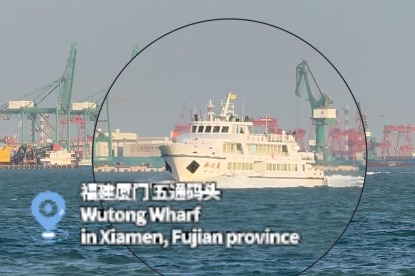New technologies and frontiers: Sustainable floating cities for China's coastlines and BRI


Chinese construction companies are already world leaders in building green sustainable buildings. China is also the new world leader in renewable energy and is quickly becoming a hub for global artificial intelligence development.
One aspect of China's environmental policies that impressed Collins Chen was China's new national ban on coastal reclamation, a previous practice that damaged coastline ecosystems. Floating Cities will be faster to develop than land reclamation in coastal cities. In addition, they will be more environmentally friendly. "Traditionally many fishing people in China lived on the water, particularly in my native Guangdong province. So in many ways, I am introducing new technology, while at the same time bringing a traditional concept back home," he said.
Meanwhile, many major coastal communities in China are under threat from the rising sea. The situation is dire, with a recent study by Climate Central stating Chinese cities are the most at-risk of any nation. Guangzhou, Shenzhen and Shanghai, already strained by population increases, are under threat from the rising sea. This challenge is not unique to China. Climate refugees, including those displaced by rising seas, will reach 1.4 billion by 2060 worldwide. By 2100, an estimated $1.4 to $14 trillion in infrastructure will be lost per year to sea level rise. Guangzhou is listed by the World Bank as the city that will be the most economically impacted.
The challenges are many — but smart, environmental technology can help China meet these challenges. Sustainable living on the ocean is no longer science fiction. This is within China's technological reach and would solve complex challenges, including sea level rise while allowing for people to live comfortably on previously uninhabitable islands, by providing the floating infrastructure for complete ecological cities. The ocean covers over 70 percent of the surface of our planet. It is the next frontier for human habitation. Floating cities can be another aspect of China's solution.
Laurence Brahm is the founding director of the Himalayan Consensus and a senior international fellow at the Center for China and Globalization.
The opinions expressed here are those of the writer and do not necessarily represent the views of China Daily and China Daily website.


































